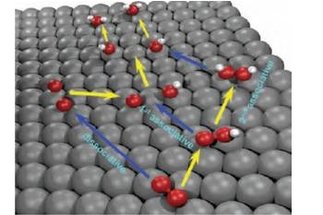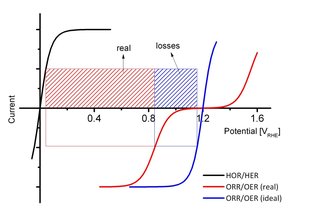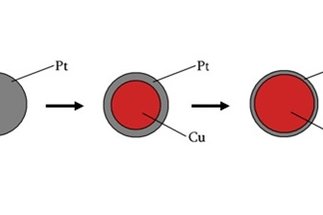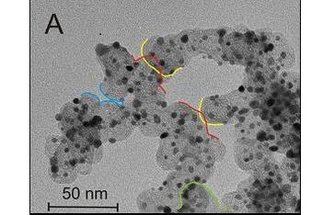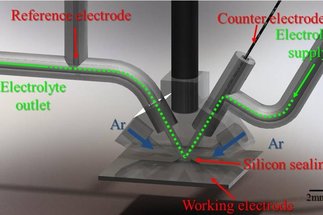Oxygen Reduction Reaction
Fuel cells are promising candidates for clean energy conversion in the quest for alternatives to conventional fossil fuel technology. The high amount of noble material, the overpotential required for the Oxygen Reduction Reaction (ORR) and the degradation of the electrocatalysts are the main issues that impair practical application. For electrocatalysis, the development of active and stable low-cost catalysts to be used as cathodes in Polymer Electrolyte Membrane Fuel Cells (PEMFCs) is a massive challenge.
The study of the ORR in the Electrocatalysis Group at the MPIE is conducted in a concerted way, by combining...
The oxygen reduction reaction (ORR) is a fundamental reaction related to various disciplines such as energy conversion, material dissolution or biology. Recently, particular interest focused on its essential role in fuel cells or lithium-air batteries. However, the mechanism of the ORR on metal surfaces remains unclear.
[more]
Platinum-based electrocatalysts are still the state-of-the-art cathodes for the ORR. During the last decades, extensive investigations were performed on platinum single-crystals, in order to provide more insight into the mechanism of the ORR and the origin of the overpotential. It is well established that the activity for the ORR is ...
[more]
Fuel cell catalyst that are made out of copper and platinum are being studied. We are preforming activity and degradation measurements with RDE, IL-TEM and ICP-MS.
[more]
Most studies on improving the stability and activity of fuel cell catalysts till now have focused on the characteristics of platinum and platinum alloy nanoparticles as electrode materials. However the support interactions between these nanoparticles and the commonly used carbon support, remain less known and understood.
[more]
For fast characterisation of different Pt -based catalysts for use in Polymer Electrolyte Membrane Fuel Cells (PEMFC) the Scanning Flow Cell System (SFC) is used.
[more]

